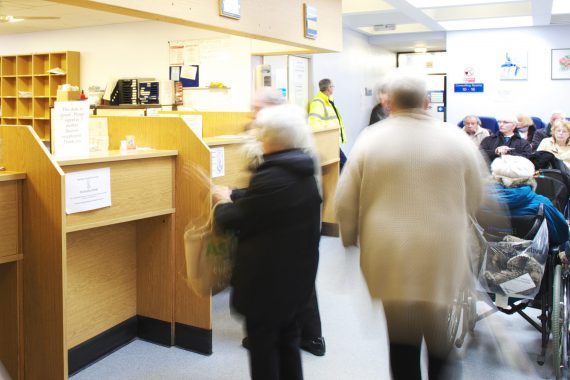‘The state of general practice in under-doctored areas is shocking’

I am a GP working at various practices as a locum in an area of the UK that is very under-doctored, and the situation is shocking. Some practices have lists of around 4,000 patients per WTE GP and often they have very little in the way of registrars or nurse practitioners. There is an unsurprising tendency for the worst affected practices to repeatedly lose staff to better staffed practices – often those that are better organised.
At these struggling practices the most obvious problem is that patients cannot get appointments – even for serious acute problems. I have seen patients with severe shingles, haemoptysis, cervical myelopathy, crescendo angina – all of whom have waited weeks to be seen by a doctor. Some of them go to see a pharmacist or a nurse – but neither of these groups has diagnostic training. Some go to A&E, and tend to be either over-investigated or completely ignored. And then of course there is no continuity of care and very little understanding of follow-up and no safety netting.
The more serious problem is the effect on the GPs who are stressed and overworked, and the negative consequences of this. There is very poor continuity as follow-up slots are full. I have also witnessed excessive prescribing and imaging and referrals, as there is an incentive to do anything to finish the day’s work, and both of those help get the patient out of the door. But as we know, poor continuity and increased imaging and prescribing actually create work rather than reduce it in the long run.
There is also a tendency to try to push work onto other staff. The result is that good nurses leave these practices as they do not want to be loaded with work that is beyond their skill set. The GPs are so busy doing the day job that medical records are poorly organised, medication reviews are done sloppily if at all, and the overall leadership of the practice suffers. If the CQC inspects the practice that adds a lot of stress, and the inevitably indifferent result is a further blow to morale, and the prospects for recruitment.
Struggling practices need help not chastisement
How is it that the Department of Health and Social Care and the RCGP is so complacent in the face of this crisis?
As so often, there are several factors. Many GPs have retired early – the causes are often quoted as falling GP work earnings, disenchantment with CCGs, the CQC, and revalidation. I think more significant is the sense that we have suffered a loss of control of our work, with QOF making us ask pointless questions about emergency contraception to 45-year-olds, prescribing software pop-ups that order us around for petty savings, warnings about FGM on computers of doctors in areas with no ethnic minorities. These are very harmful to our sense of doing a worthwhile job.
And we have failed to recruit new GPs. Quite an achievement when one considers that the training is three years rather than seven, salaries are good, and there is no out-of-hours work if you don’t want it. How have the deaneries managed that? I have talked to many young doctors and most of the ones who have done F2 in general practice have felt exploited and hated it. They feel that have been chucked in at the deep end. There seems to have been lots of investment in the system for training registrars who often work at the practices of the doctors in the training hierarchy, but very little in F2 practices – who are after all the shop window that we need to perform well if we are to attract new GPs.
The workload has obviously risen drastically. QOF has had a lot to do with that – for little clear benefit to patients. Also various health campaigns have lowered the threshold for patients to want to see us. And the internal market was always bound to see hospitals pushing work onto the part of the system in which extra work is unpaid.
So what can be done? First of all the struggling practices need help not chastisement. And the training practices should not be allowed to have, as they do at present, a monopoly on all the newly qualified GPs. It is hardly a surprise that they ignore the problem.
But the quick fix that would really help would be to allow doctors who are not GP trained, for example doctors who have experience in relevant specialties like A&E, paediatrics, medicine and so on to work in general practice, under the supervision of an experienced GP. It is crazy that GPs can work in A&E anytime they like with no supervision but that the reverse is not allowed.
Abolishing CCGs would also return a significant number of GP man hours to the overall workforce.
This would alleviate the shortage, and help attract some young doctors to train as GPs.
In the long run we also need to take some more radical steps. I would suggest abolishing the CQC and the QOF, ending the duty to provide sick notes, end repeat prescribing, and require patients to waive their existing right to litigate against NHS doctors. I would also restore GP ‘ownership’ of medical software. Practices should be assessed mainly on their continuity of care and high scores should be rewarded.
In the even longer run the workload is still likely to increase and we probably need to charge fees for attending (no more patients asking us to provide sick notes or prescriptions for post-op care). Patients should also probably have to pay some form of prescription charge on all drugs.
Anonymous locum GP, UK
Pulse October survey
Take our July 2025 survey to potentially win £1.000 worth of tokens










